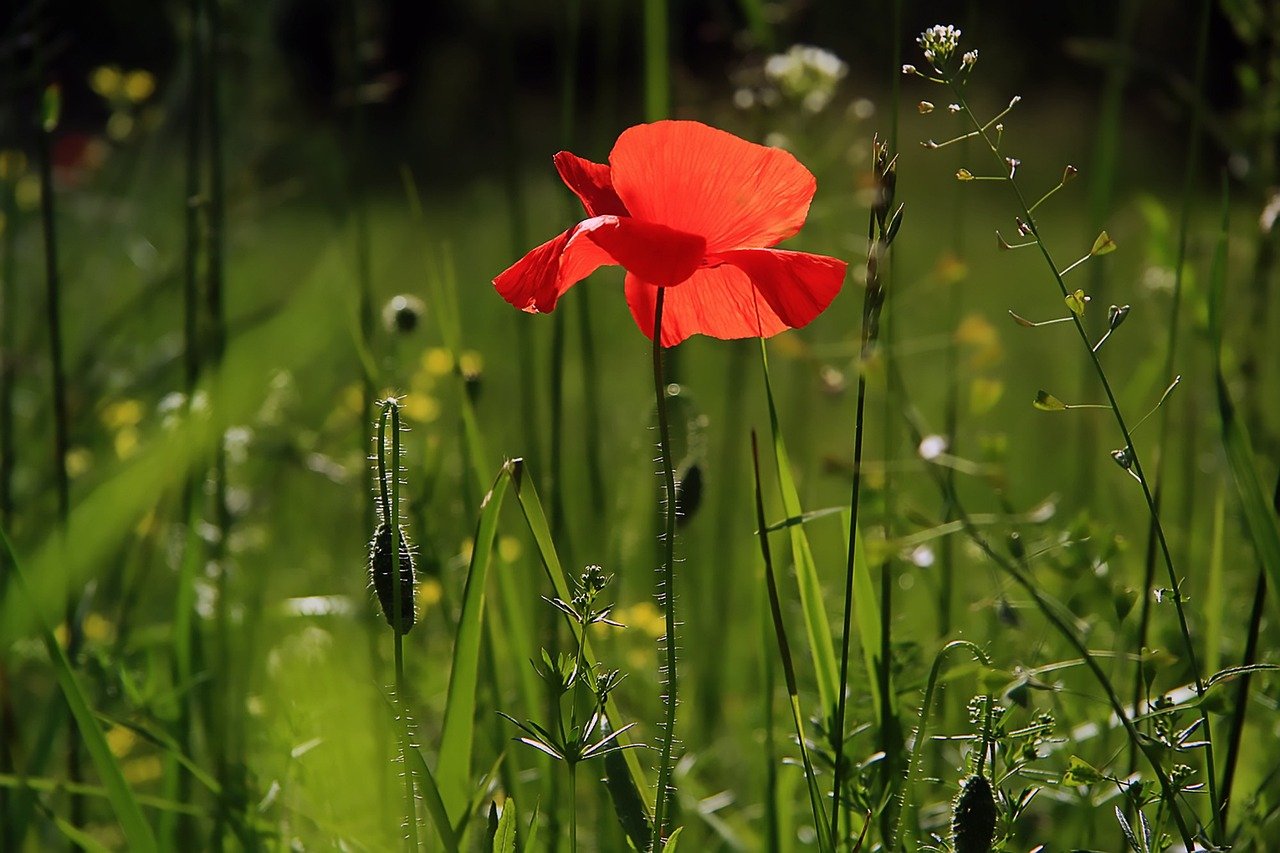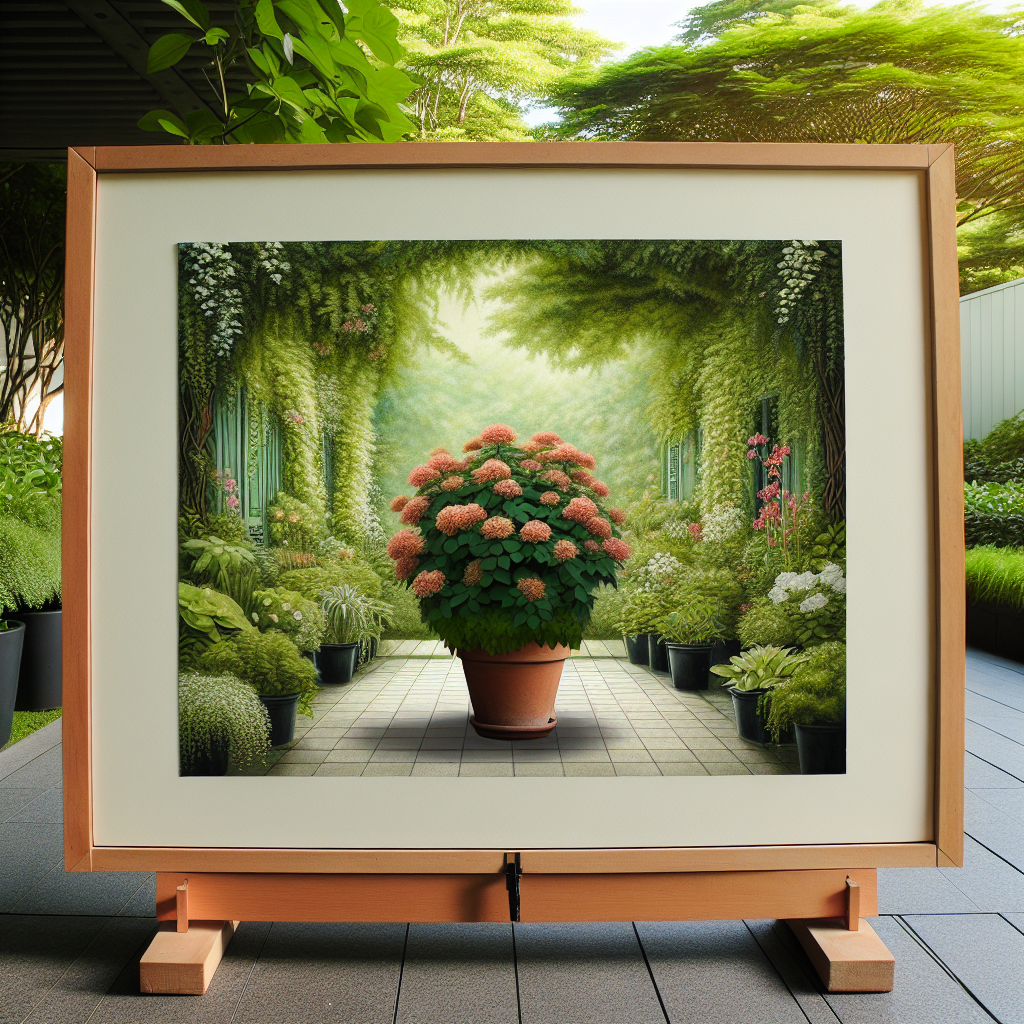
If you’ve always dreamed of having a green thumb but don’t have the luxury of a sprawling backyard, fear not! Container gardening is here to save the day. Whether you live in a cramped apartment or a cozy cottage, container gardening allows you to cultivate a beautiful and thriving garden without the need for vast expanses of land. Not only is it a great way to add some greenery to your space, but it also comes with a host of benefits. From the sheer convenience of being able to move your plants around to the satisfaction of growing your own herbs and vegetables, container gardening offers a world of possibilities. So grab your gardening gloves and get ready to embark on a rewarding and fruitful journey.

Overview of Container Gardening
Container gardening refers to the practice of growing plants in containers, such as pots, boxes, or even unconventional items like old tires or boots. It is a versatile and accessible form of gardening that has gained popularity in recent years. Not limited by traditional garden spaces, container gardening allows individuals to cultivate plants in various urban and suburban settings, even with limited space. This method offers numerous advantages and benefits, making it a popular choice among gardening enthusiasts and beginners alike.
Definition of Container Gardening
Container gardening involves the cultivation of plants in containers rather than directly in the ground. By utilizing containers of various sizes, shapes, and materials, individuals can create portable gardens that can thrive on balconies, rooftops, patios, or even indoors. Plants grown in containers can range from vibrant flowers and foliage to a wide variety of vegetables and herbs. The possibilities are endless, limited only by the imagination and preferences of the gardener.
History of Container Gardening
Container gardening has its roots in ancient civilizations, where the practice was used for the practical purpose of bringing plants indoors during inclement weather. Ancient Egyptians and Romans are known to have grown plants in containers for decorative purposes as well. Over time, container gardening techniques and materials evolved, and the practice spread across the globe. Today, container gardening has become a popular gardening trend, offering practical solutions for urban dwellers and gardeners with limited outdoor space.
Types of Containers Used
When it comes to container gardening, the options for containers are vast and diverse. From traditional terracotta pots to recycled materials like plastic bottles or wooden crates, containers come in a wide range of sizes, shapes, and materials. Some popular container options include ceramic pots, hanging baskets, window boxes, bag planters, and self-watering containers. Each type of container has its advantages and considerations, depending on the plants being grown and the specific needs of the gardener.
Advantages of Container Gardening
Container gardening provides numerous advantages and benefits, making it an attractive option for both experienced gardeners and those new to gardening.
Accessibility and Convenience
One of the significant advantages of container gardening is its accessibility and convenience. Regardless of the available space, anyone can engage in container gardening, even those living in apartments or homes without a traditional garden. The portability of containers allows gardeners to move their plants around to find the best light conditions or protect them from adverse weather conditions. Additionally, containers make it easier to maintain and care for plants, reducing the physical strain often associated with traditional gardening methods.
Limited Space Requirements
Container gardening is ideal for individuals with limited outdoor space. Whether you have a small balcony, deck, or window ledge, containers can transform these spaces into vibrant green areas. By utilizing vertical gardening techniques or hanging planters, you can make the most of even the smallest of spaces. This accessibility to gardening opportunities allows individuals to connect with nature, even in the heart of a bustling city.
Flexibility and Mobility
The inherent mobility of container gardening is another advantage that sets it apart from traditional gardening techniques. Containers can be easily moved around to optimize sunlight exposure or protect plants from extreme temperatures. This flexibility allows gardeners to experiment with various arrangements and layouts, creating visually appealing displays. Additionally, if you plan on relocating, you can easily take your container garden with you, allowing you to maintain your gardening hobby wherever you go.
Pest and Weed Control
Container gardening offers greater control over pests and weeds compared to traditional gardening methods. By keeping plants off the ground, you can minimize the risk of pests and weed infestation. Containers can also be equipped with mesh or screens to further deter unwanted pests. Additionally, the controlled environment of containers allows for easier monitoring and treatment of any potential issues that may arise, ensuring the health and vitality of your plants.
Suitability for Various Plant Species
Container gardening allows for a wide range of plant options, from ornamental flowers to edible greens. This versatility means that gardeners can choose plants that suit their preferences, climate, and available space. A container garden can be a beautiful display of colorful flowers, a bountiful vegetable garden, or a combination of both. The ability to grow a diverse range of plants in containers offers greater flexibility and creativity in gardening endeavors.
Protection from Extreme Weather Conditions
Container gardening provides a level of protection against extreme weather conditions. In regions with harsh winters or scorching summers, containers can be easily moved indoors or to a more sheltered spot to safeguard plants from temperature extremes. This adaptability is especially valuable in regions with unpredictable weather patterns, as it allows gardeners to prolong the growing season and protect their plants from frost, high winds, or intense heat.

Environmental Benefits
Beyond the individual advantages, container gardening also offers various environmental benefits. By engaging in this sustainable practice, gardeners contribute to a greener and healthier environment.
Tapping into Underutilized Spaces
Container gardening provides a unique opportunity to tap into underutilized spaces within urban areas. By transforming empty balconies, rooftops, or alleyways into green oasis, container gardens help make cities more visually appealing and environmentally friendly. This utilization of space not only benefits the gardener but also contributes to a sense of community and improves the overall aesthetic of the neighborhood.
Water Conservation
Container gardening promotes water conservation by allowing for more efficient watering practices. Containers provide a confined space for plants, reducing the amount of water needed compared to traditional gardens. Moreover, the use of mulch and careful watering techniques can further minimize water waste and ensure plants receive the necessary moisture. With water scarcity becoming an increasing concern, container gardening offers an eco-conscious way to enjoy gardening while conserving this precious resource.
Reducing Soil Erosion
In traditional gardening, soil erosion can be a significant issue, especially in sloped or exposed areas. When heavy rainfall occurs, topsoil can be washed away, degrading the overall health of the garden. However, container gardening eliminates this concern. By confining the soil within containers, gardeners can prevent erosion and maintain the quality of the soil. This means that nutrients remain available to the plants and the surrounding environment is protected from soil runoff.
Minimizing Pollution and Runoff
Container gardening helps minimize pollution and runoff associated with traditional gardening practices. The confined soil in containers allows for better control over fertilizers and pesticides, preventing excessive use and reducing the risk of these harmful substances leaching into the soil or nearby water sources. Container gardens can also contribute to improving air quality by absorbing pollutants and releasing oxygen, creating a healthier living environment for both humans and other living creatures.
Enhancing Urban Landscapes
Container gardening plays a crucial role in enhancing urban landscapes, making them more vibrant, green, and sustainable. With more people residing in urban areas, the importance of exploring innovative ways to incorporate nature into these environments becomes increasingly evident.
Beautification of Urban Areas
Container gardening adds a touch of natural beauty to otherwise concrete-laden urban areas. By utilizing containers to create vibrant displays of flowers, shrubs, or even small trees, city streets, plazas, and parks are transformed into visually pleasing spaces. The combination of different colors, textures, and scents lends an aesthetic charm that uplifts the spirits of both residents and visitors.
Creation of Green Spaces
Urban container gardening allows for the creation of green spaces in areas where traditional gardens would be impractical or impossible. Container gardens offer the opportunity to bring plants and nature into densely populated urban environments, enhancing the quality of life for residents. These green spaces provide a sanctuary from the hustle and bustle of city life, offering tranquility, fresh air, and a connection with nature.
Improved Air Quality
Container gardening contributes to improving air quality in urban areas. Plants naturally absorb carbon dioxide and release oxygen through the process of photosynthesis. By introducing container gardens into city apartments, office buildings, or public spaces, the air becomes enriched with oxygen, helping to reduce air pollution and creating a healthier environment for all.
Reduced Urban Heat Island Effect
The urban heat island effect refers to the phenomenon in which urban areas experience higher temperatures than their rural surroundings. This increase in temperature is caused by the large concentrations of asphalt and concrete in cities, which absorb and radiate heat. Through the strategic placement of container gardens on rooftops, balconies, or other available spaces, the urban heat island effect can be mitigated. Plants provide shade, absorb heat, and release moisture through transpiration, thus cooling the immediate vicinity and reducing the overall ambient temperature.

Promoting Sustainable Practices
Container gardening is more than just a hobby; it is a way to promote sustainable practices that benefit the environment and our communities. By embracing this form of gardening, individuals can actively contribute to a greener future.
Encouraging Organic Gardening
Container gardening provides an excellent opportunity to practice organic gardening methods. By carefully selecting organic and chemical-free fertilizers, pest control solutions, and soil amendments, gardeners can minimize their impact on the environment and avoid the use of harmful substances. Growing plants organically not only benefits the gardener’s health but also supports the overall ecosystem by preserving beneficial insects, soil organisms, and other forms of life.
Supporting Biodiversity and Pollinators
Container gardening can contribute to supporting biodiversity and pollinators in urban areas. Planting a diverse array of flowers and herbs attracts bees, butterflies, and other beneficial insects, which play a crucial role in pollination. These pollinators are essential for the reproduction of many plants, including food crops. By creating a welcoming environment for them, gardeners actively support the preservation of these vital species.
Reducing Carbon Footprint
Container gardening offers an effective means of reducing one’s carbon footprint. By growing plants in containers, individuals can enjoy the benefits of gardening without requiring large amounts of land or resources. Additionally, the act of growing one’s food or flowers locally minimizes the carbon emissions associated with transportation, packaging, and storage. Container gardening also encourages the use of organic waste for composting, further reducing the amount of waste that ends up in landfills.
Opportunities for Composting and Recycling
Container gardening provides opportunities for composting and recycling. Composting kitchen scraps and garden waste can generate nutrient-rich compost that can be used to nourish container plants. By recycling items such as plastic containers or old wooden pallets and transforming them into planters, gardeners give new life to these materials and contribute to the reduction of waste. This environmentally conscious approach ensures that resources are utilized efficiently, promoting sustainability in gardening practices.
Health and Well-being Benefits
Engaging in container gardening offers various health and well-being benefits, promoting a holistic sense of well-being and connection with nature.
Stress Reduction
Container gardening provides a therapeutic escape from the stresses of daily life. Engaging in gardening activities, such as planting, watering, and pruning, can help reduce stress levels and promote relaxation. The act of nurturing plants and watching them grow can have a calming effect on both the mind and body, allowing individuals to unwind and find solace in the natural world.
Enhanced Mood and Mental Well-being
Container gardening has been shown to elevate moods and improve mental well-being. The combination of fresh air, physical activity, and the beauty of plants releases endorphins, the body’s natural mood enhancers. The satisfaction of watching a plant thrive and the sense of accomplishment that comes with successfully growing and caring for a container garden can boost self-esteem and create a sense of purpose and fulfillment.
Therapeutic and Rehabilitation Benefits
Container gardening has therapeutic benefits and can even aid in rehabilitation. The act of tending to plants can improve fine motor skills, hand-eye coordination, and overall dexterity. Gardening has also been used as a form of therapy for individuals with physical or mental health conditions, providing a productive and healing outlet. Container gardening can be particularly accessible for those with mobility challenges or limited strength, as it can be done at an appropriate height or location.
Encouragement of Physical Activity
Container gardening encourages physical activity, as it involves tasks such as lifting pots, digging, and bending. These activities provide a form of low-impact exercise that can help maintain mobility and flexibility. Engaging in container gardening on a regular basis can contribute to an active lifestyle, allowing individuals to stay physically fit while enjoying the benefits of gardening.

Economic Benefits
Container gardening offers numerous economic benefits, making it a cost-effective and rewarding endeavor.
Cost-effectiveness
Container gardening can be a cost-effective alternative to purchasing expensive potted plants or landscaping services. By starting with seeds or small seedlings and tending to them in containers, individuals can save money compared to buying mature plants. Container gardening also allows for better control over resources such as water and fertilizers, reducing ongoing maintenance costs.
Potential for Homegrown Produce
Container gardening offers the opportunity to grow your own food, significantly reducing grocery expenses. By cultivating vegetables, herbs, and fruits in containers, individuals can enjoy the satisfaction of homegrown produce, while also ensuring its freshness and quality. This self-sufficiency not only saves money but also provides access to a healthy and sustainable food source.
Reduced Grocery Expenses
Container gardening can lead to reduced grocery expenses by growing herbs, salad greens, and even small fruits and vegetables at home. The ability to produce at least a portion of your food supply can alleviate the strain on the budget and provide nutritional benefits. By growing your own produce, you have the opportunity to reduce reliance on store-bought items, which often come with a higher price tag.
Income Generation through Selling Surplus
Container gardening can become a source of income through the sale of surplus plants or produce. As container gardens flourish, gardeners may find themselves with an abundance of plants they don’t necessarily need. By selling these excess plants or produce at local markets or through online platforms, gardeners can turn their hobby into a small business. This can provide a supplementary income source or even a full-scale entrepreneurial opportunity.
Educational and Learning Opportunities
Container gardening offers valuable educational and learning opportunities for people of all ages. It provides a hands-on, interactive experience that fosters curiosity, knowledge acquisition, and a deeper understanding of the natural world.
Hands-On Learning for Children
Container gardening is an excellent way to engage children in hands-on learning activities. By involving them in the planting, watering, and monitoring of plants, children develop an understanding of the life cycle of plants and the importance of caring for the environment. Gardening also teaches patience, responsibility, and problem-solving skills, offering a valuable educational experience that can be applied to various aspects of their lives.
Teaching About Plant Life Cycles
Container gardening provides a practical platform for teaching about plant life cycles, from seed germination to harvest. This hands-on experience allows individuals to witness firsthand the various stages of plant growth and development. Understanding how plants grow and thrive promotes a deeper appreciation for the natural world and encourages environmental stewardship.
Promoting Food Literacy
Container gardening encourages food literacy by connecting individuals with the source of their food. By growing edible plants in containers, gardeners gain a better understanding of where their food comes from and the effort that goes into its production. This awareness can lead to healthier eating habits, as individuals become more conscious of the nutritional value of their food choices.
Encouraging Sustainable Habits
Container gardening promotes sustainable habits by instilling an appreciation for the environment and the importance of conservation. Gardening activities, such as composting, recycling, and water conservation, can be incorporated into educational programs surrounding container gardening. By engaging in sustainable practices from an early age, children develop a sense of responsibility towards the planet, creating a more sustainable future.

Creative Expression and Personalization
Container gardening provides ample opportunities for creative expression and personalization, allowing individuals to showcase their unique style and preferences.
Artistic and Decorative Possibilities
Container gardening offers a creative outlet for artistic expression. Containers can be chosen to complement the aesthetics of their surroundings, taking into consideration factors such as color, shape, and material. By selecting containers that reflect personal style, gardeners can transform a collection of plants into a work of art, creating a visually striking display that showcases their creativity and enhances the overall ambiance of the space.
Customization of Container Gardens
One of the advantages of container gardening is the ability to customize and tailor the garden to personal preferences. From selecting specific plants to choosing container sizes and arrangements, every aspect of the garden can be adjusted to meet individual desires. Container gardens can reflect personal taste, whether it be an elegant, formal display or a whimsical, eclectic collection of plants.
Reflection of Personal Style and Preferences
Container gardening offers an opportunity to reflect personal style and preferences through the choice of plants and containers. Whether leaning towards a modern, minimalist aesthetic or a lush, cottage garden-inspired look, container gardens can be a reflection of the gardener’s personality and taste. This personalization adds an element of uniqueness to individual gardens, making them truly one-of-a-kind.
Opportunity for Experimentation
Container gardening allows for experimentation and exploration of different plants and growing techniques. Due to the portability of containers, gardeners can easily switch plant combinations or relocate plants to optimize growth conditions. This trial-and-error approach offers the chance to discover new plant varieties, learn from successes and failures, and continuously evolve as a gardener.
Maintenance and Care
While container gardening offers numerous advantages and benefits, it is essential to understand and implement proper maintenance and care practices to ensure the health and vitality of plants.
Choosing the Right Soil Mixture
Selecting the right soil mixture is crucial for the success of container gardening. Containers require well-drained, nutrient-rich soil that allows plant roots to grow and develop properly. A good potting mix is typically a combination of peat moss or coconut coir, vermiculite or perlite, and compost or other organic matter. This balanced mix provides both water retention and drainage, creating an optimal growing environment for plants.
Watering and Drainage Techniques
Proper watering and drainage are essential for container gardening success. Containers must have adequate drainage holes to prevent water from accumulating and causing root rot. Regular and appropriate watering is crucial, ensuring that plants receive the necessary moisture without becoming waterlogged. Watering requirements may vary depending on the specific plant species, the size of the container, and the prevailing weather conditions.
Fertilizing and Feeding Plants
In container gardening, plants rely on the gardener to provide the necessary nutrients for healthy growth. Regular fertilizing is typically necessary to replenish the nutrients that are depleted over time. There are various types of fertilizers available, including organic options, which can be selected based on the specific needs of the plants being grown. Following a fertilization schedule and monitoring plant responses helps maintain the health and vigor of container-grown plants.
Pruning and Pest Management
Regular pruning and pest management are essential aspects of container gardening. Pruning helps promote plant growth by removing dead or damaged foliage and encourages the development of a desired shape or form. It is also important to monitor plants for pests and diseases, as container gardens can be susceptible to infestations. Prompt action and the use of organic pest control methods can help mitigate the risk of pest damage and maintain the overall health of container plants.
In conclusion, container gardening offers a wealth of advantages and benefits that make it an attractive and practical option for individuals of all gardening levels. From the accessibility and convenience it provides to the numerous environmental, health, economic, educational, and creative benefits, container gardening has something to offer everyone. Engaging in this form of gardening allows individuals to connect with nature, promote sustainability, and enhance their urban environments. Whether you have limited space, a penchant for creative expression, or a desire to grow your own food, container gardening welcomes you into a world of endless possibilities.





